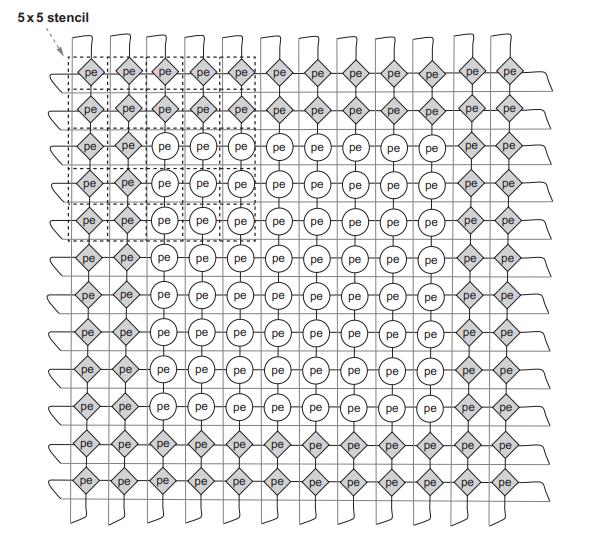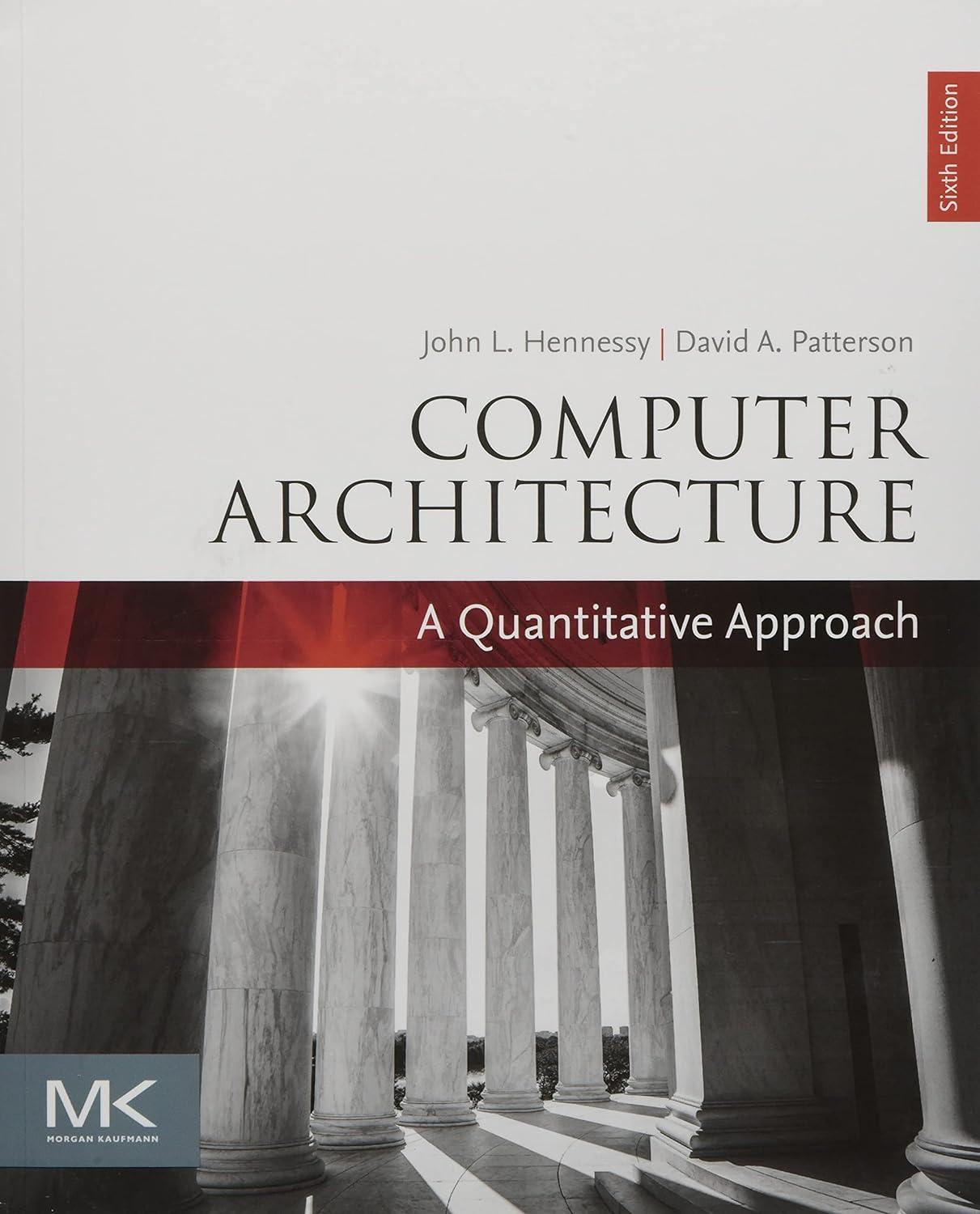As shown in Figure 7.34 (but simplified to fewer PEs), each Pixel Visual Core includes a 16
Question:
As shown in Figure 7.34 (but simplified to fewer PEs), each Pixel Visual Core includes a 16 х 16 set of full processing elements, surrounded
Figure 7.34

by an additional two layers of "simplified" processing elements. Simplified PES can store and communicate data but omit the computation hardware of full PEs. Simplified PEs store copies of data that might be the "home data" of a neighboring core, so there are (16+2+2) =400 PEs in total, 256 full and 144 simplified.
a. Suppose that you wanted to process a 64 32 grayscale image with a 5 x 5 stencil using 8 Pixel Visual Cores. For now, assume that the image is laid out in raster-scan order (pixels that are adjacent in X are adjacent in memory, while pixels that are adjacent in Y are 64 memory locations apart). For each of the 8 cores, describe the memory region that the core should import to handle its part of the image. Make sure to include the halo region. Which parts of the halo region should be zeroed by software to ensure correct operation? You may find it convenient to refer to subregions of the image using a 2D slice notation, where for example image[2:5][6:13] refers to the set of pixels whose x component is 2
b. If we change to a 3 x 3 stencil, how do the regions imported from memory change? How many halo-simplified PEs go unused?
c. Now consider how to support a 7 x 7 stencil. In this case, we don't have as many hardware-supported simplified PEs as we need to cover the three pixels worth of halo data that "belong to" neighboring cores. To handle this, we use the outermost ring of full PEs as if they were simplified PEs. How many pixels can we handle in a single core using this strategy? How many "tiles" are now required to handle our 64 x 32 input image? What is the utilization of our full PEs over the complete processing time for the 7x7 stencil over the 64 x 32 image?
Step by Step Answer:

Computer Architecture A Quantitative Approach
ISBN: 9780128119051
6th Edition
Authors: John L. Hennessy, David A. Patterson





